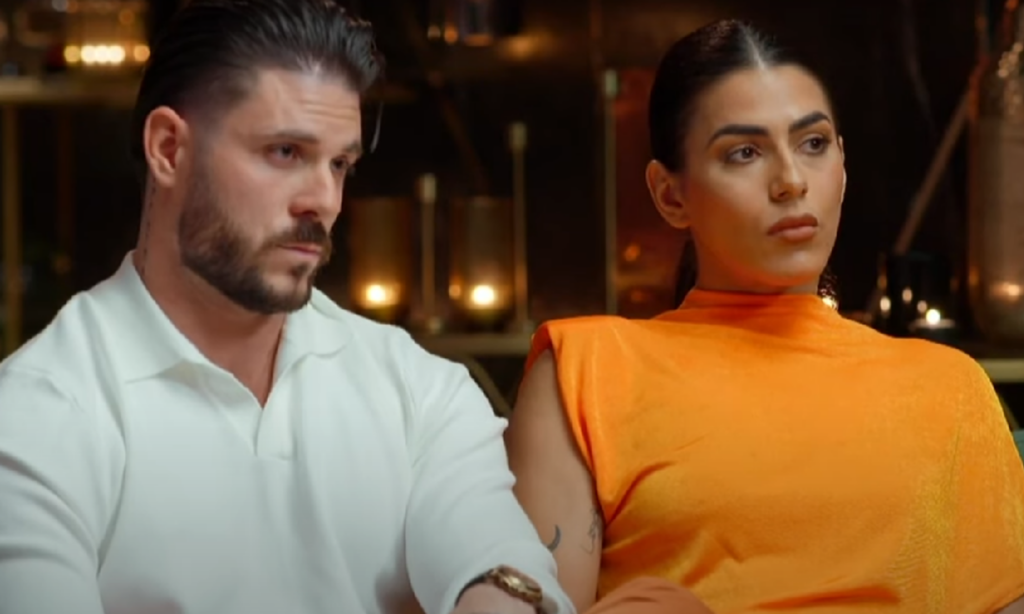I don’t watch Married at First Sight but I’m going to hazard a guess I am not their target market. I had a friend who half filled out an application six years ago after a few beverages and was called last year for casting. The process? Not as rigorous as one would envisage. Thankfully, he was not cast.
This year they’ve really outdone themselves.
Recent episodes of MAFS, as it colloquially known, have sparked significant controversy in Australian media due to allegations of coercive control and abusive behavior among participants. Viewers have escalated complaints to Channel Nine and the Australian Communications and Media Authority (ACMA), asserting that the show enables offensive conduct.
Who could forget the early headlines of Tim Gromie; a school teacher working allegedly banned from dating apps (due diligence anyone?) who holds—in my observation—utterly egregious views about the physicality of women he feels he deserves and was particularly awful to the woman (a CEO) who he was matched with. I was already horrified, but that blatant misogyny was only a warm up.
A recent incident involved contestant Paul Antoine, who punched a wall during a confrontation with his wife, Carina. This act led to a police investigation and raised questions about the show’s duty of care towards participants. Another participant, Adrian Araouzou, faced public backlash for his manipulative and controlling behavior towards his partner, Awhina Rutene. Reports revealed that Araouzou had been acquitted of serious domestic violence charges prior to joining the show. Again, I wonder where the due diligence from Endemol Shine was.
All these controversies have intensified discussions about the ethical responsibilities of reality TV producers and the potential harm inflicted on both participants and viewers
The sad reality is, this is the story of thousands of Australians who live in violence.
By broadcasting such behaviors without condemnation, MAFS contributes to a very strong narrative that thrives in popular culture—that domestic violence and coercive controlling behaviours are understandable and justifiable.
This series was filmed and edited in 2024, a year of extreme escalation in femicide, the murders at Bondi Westfield and we currently have a 31-year high of sexual violence with victimisation outstripping population growth. I would argue the producers felt emboldened to show this behaviour for clicks.
My understanding is that “The Experts” who should know better than to justify the alleged violent actions of entitled men, have given a very quick redemption arc for these appalling acts. From a practice perspective, experts like Dr Brian Sullivan are clear that behaviour change takes time and deep therapeutical work—not sobbing on the set for five minutes of a reality TV Show.
Grassroots organisation What Were You Wearing have led calls for the show to be taken off the air and for Channel Nine to issue a formal apology. I’d also like to see formal sanctions on all media and entertainment outlets that perpetuate damaging and false narratives and domestic, family and sexual violence, similarly to how we respond to media commentary and visual representations of suicide. That is a bold, ambitious and welcome policy platform for any political party to tackle.
Through these shows, we construct what abuse looks like—and it’s neat, linear and perpetrators always have regrets—if only life were so simple. It’s also not just this show. One of the loudest critiques of MAFS comes from an influencer who hosts a show where men can self-identify as “fuckboys” and attempt to “trick” women to win money.
I can’t see how any of these narratives contribute positively to addressing attitudes towards gender-based violence in this country. It is a divided landscape, the data tells us that. Pop psychology, wrongly identifying behaviours and personality types through social media drives further division in how we address this issue.
As people become more conservative in their thinking, we would hope that by having conversations and accurate representations of negative behaviours through media would encourage a curiosity and dialogue for people who may not be well versed in gender-based violence. These shows simply don’t do that.
There has been commentary that this vocal controversy is being driven by peoples changing attitudes toward domestic, family and sexual violence, perhaps there is an element of this I really hope we see that reflected in our community attitudes survey.
However, I do note the loudest commentary is coming from the people and organisations we would expect and rightly so. That’s not a critique; it’s a reflection about the efficacy of our messaging lasting longer than a media cycle. Now more than ever we need to be engaging and strong in a cohesive message for change.
If you are concerned about your behaviour, or about someone using violence, call Men’s Referral Service on 1300 766 491.
If you or someone you know is in need of help due to sexual assault or family and domestic violence contact 1800RESPECT on 1800 737 732.
In an emergency call 000.



